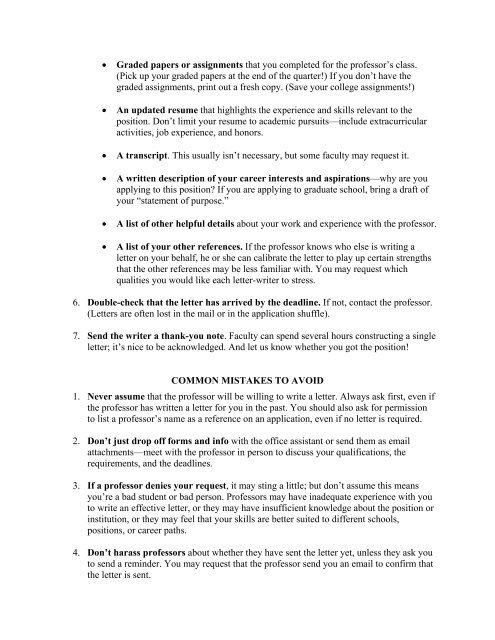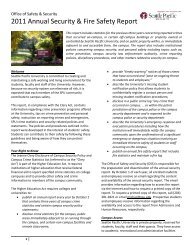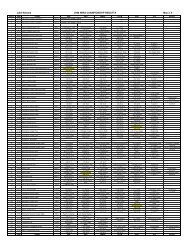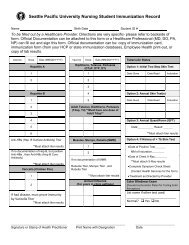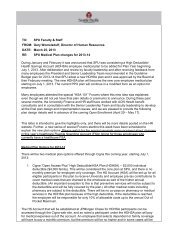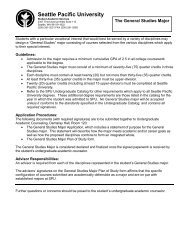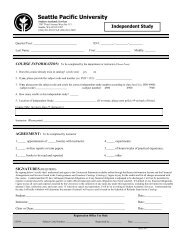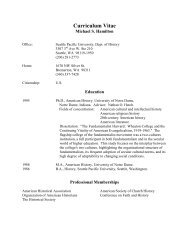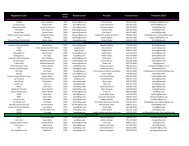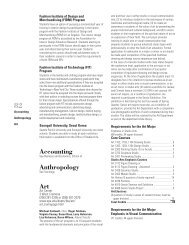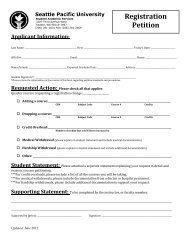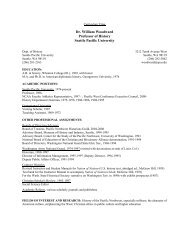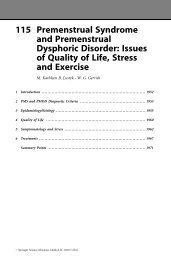RECOMMENDATION LETTER ETIQUETTE Guidelines for ...
RECOMMENDATION LETTER ETIQUETTE Guidelines for ...
RECOMMENDATION LETTER ETIQUETTE Guidelines for ...
You also want an ePaper? Increase the reach of your titles
YUMPU automatically turns print PDFs into web optimized ePapers that Google loves.
Graded papers or assignments that you completed <strong>for</strong> the professor’s class.<br />
(Pick up your graded papers at the end of the quarter!) If you don’t have the<br />
graded assignments, print out a fresh copy. (Save your college assignments!)<br />
An updated resume that highlights the experience and skills relevant to the<br />
position. Don’t limit your resume to academic pursuits—include extracurricular<br />
activities, job experience, and honors.<br />
A transcript. This usually isn’t necessary, but some faculty may request it.<br />
A written description of your career interests and aspirations—why are you<br />
applying to this position? If you are applying to graduate school, bring a draft of<br />
your “statement of purpose.”<br />
A list of other helpful details about your work and experience with the professor.<br />
A list of your other references. If the professor knows who else is writing a<br />
letter on your behalf, he or she can calibrate the letter to play up certain strengths<br />
that the other references may be less familiar with. You may request which<br />
qualities you would like each letter-writer to stress.<br />
6. Double-check that the letter has arrived by the deadline. If not, contact the professor.<br />
(Letters are often lost in the mail or in the application shuffle).<br />
7. Send the writer a thank-you note. Faculty can spend several hours constructing a single<br />
letter; it’s nice to be acknowledged. And let us know whether you got the position!<br />
COMMON MISTAKES TO AVOID<br />
1. Never assume that the professor will be willing to write a letter. Always ask first, even if<br />
the professor has written a letter <strong>for</strong> you in the past. You should also ask <strong>for</strong> permission<br />
to list a professor’s name as a reference on an application, even if no letter is required.<br />
2. Don’t just drop off <strong>for</strong>ms and info with the office assistant or send them as email<br />
attachments—meet with the professor in person to discuss your qualifications, the<br />
requirements, and the deadlines.<br />
3. If a professor denies your request, it may sting a little; but don’t assume this means<br />
you’re a bad student or bad person. Professors may have inadequate experience with you<br />
to write an effective letter, or they may have insufficient knowledge about the position or<br />
institution, or they may feel that your skills are better suited to different schools,<br />
positions, or career paths.<br />
4. Don’t harass professors about whether they have sent the letter yet, unless they ask you<br />
to send a reminder. You may request that the professor send you an email to confirm that<br />
the letter is sent.


